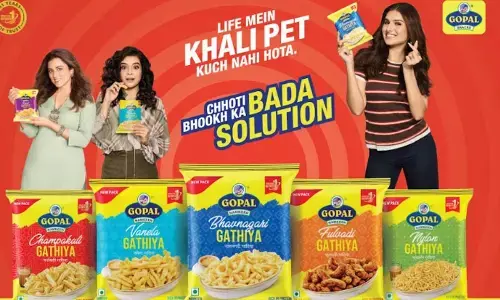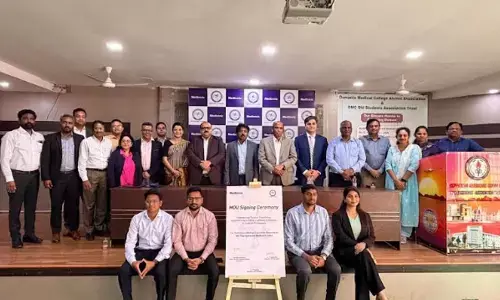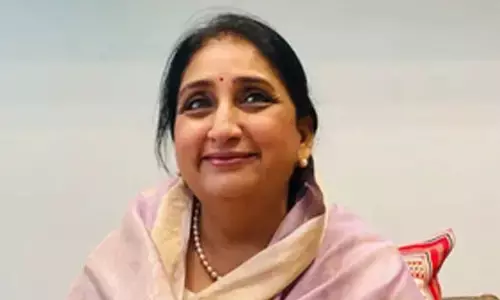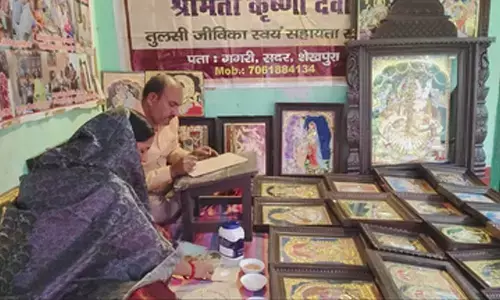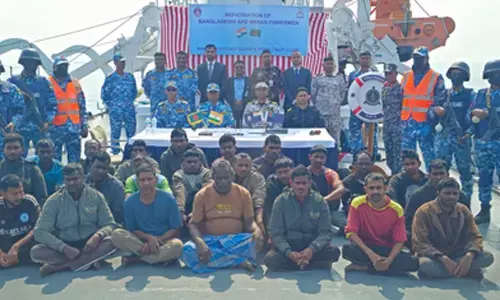The menace of fakes

Oscar Fingal O\'Flahertie Wills Wilde, the prolific Irish writer popular as Oscar Wilde, once said, \"Imitation is the sincerest form of flattery that mediocrity can pay to greatness.” That may be true in the case of an individual. But when it comes to products and services, the ramifications of an imitation are far and wide, causing immense damage in multiple ways to people and the society at large
Oscar Fingal O'Flahertie Wills Wilde, the prolific Irish writer popular as Oscar Wilde, once said, "Imitation is the sincerest form of flattery that mediocrity can pay to greatness.” That may be true in the case of an individual. But when it comes to products and services, the ramifications of an imitation are far and wide, causing immense damage in multiple ways to people and the society at large.
For instance, a fake or duplicate automobile part may result in a fatal accident. A counterfeit component that goes into an aircraft will invariably put lives of hundreds at risk. And it's obviously difficult to estimate the damage caused by counterfeit pharmaceuticals, food products, and intoxicants like liquor.
The other tell-tale example closer home is the havoc that spurious cotton seeds caused to thousands of farmers in Andhra Pradesh and Telangana. A number of farmers ended their lives in the two states, unable to stomach the economic losses caused by the handiwork of a few greedy anti-social elements.
But the menace of fake goods is not just confined to India or our Telugu states. It's a global phenomenon that poses danger to every walk of life. Though there are no precise estimates of global illicit trade, given the way it is shrouded in mystery, a 2016 report by Organisation for Economic Co-operation and Development (OECD) pegged global economic and social costs due to counterfeiting and piracy at $737 billion to $898 billion in 2013. The amount equals nearly 40 per cent of India's total GDP.
That's how big the global counterfeit industry is now. And it's growing faster than the real trade. The OECD report says the menace is expected to grow by 108 per cent to $1.54 trillion to $1.87 trillion by 2022. That will be in just five years. The International Chamber of Commerce (ICC) also estimates that counterfeit goods account for five to seven per cent of world trade. As per the World Trade Organisation, global merchandise exports stood at a whopping $16 trillion in 2015. A five per cent of that works out to be $800 billion.
So, it's no surprise that a joint report released by industry body FICCI and global consultancy firm KPMG on Monday revealed alarming trends in illicit trade in India. According to it, illicit trade and counterfeiting is rampant in tobacco, liquor, auto parts, packaged foods, FMCG and even in mobile phones. For instance, illicit trade in cigarettes zoomed by Rs 5,775 crore between 2010 and 2015. It's alone worth a whopping Rs 25,000 crore now. The numbers for auto parts, food items and FMCG are equally numbing.
Another disturbing element is that a significant part of the proceeds from the counterfeit business is being funnelled into terrorist activities and organised crime. That and immense losses to the country's economy caused by imitators underline an immediate need for curbing the growing menace of counterfeits.
As the FICCI-KPMG report suggests, the central government should strengthen intellectual property laws and create a special task force with the active involvement of the industry. Also, social media is an effective tool to create awareness against it. It's time to act before it's too late!








